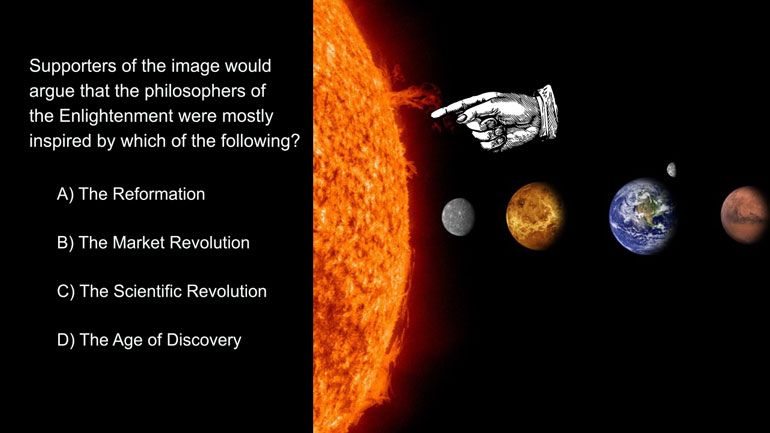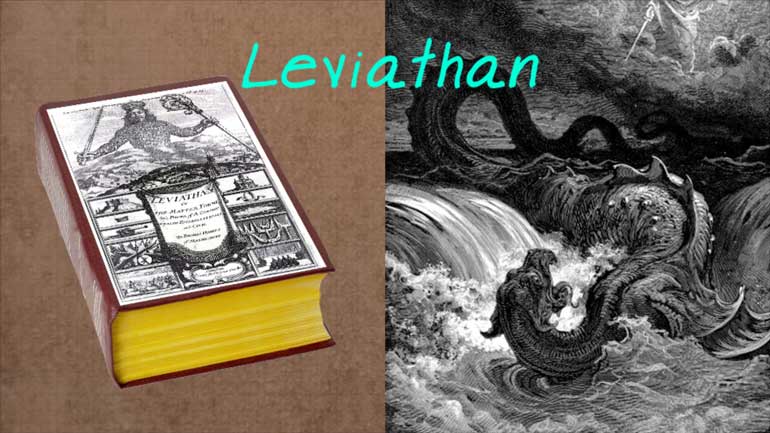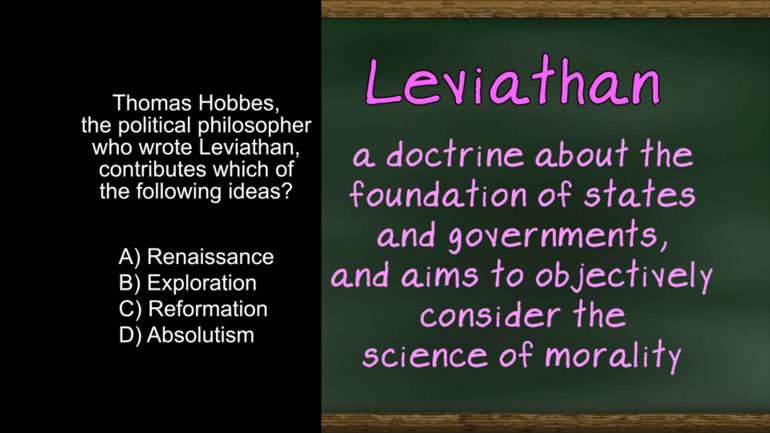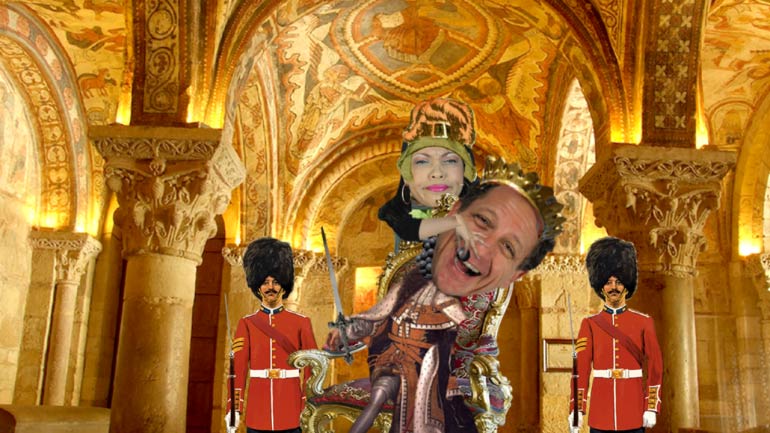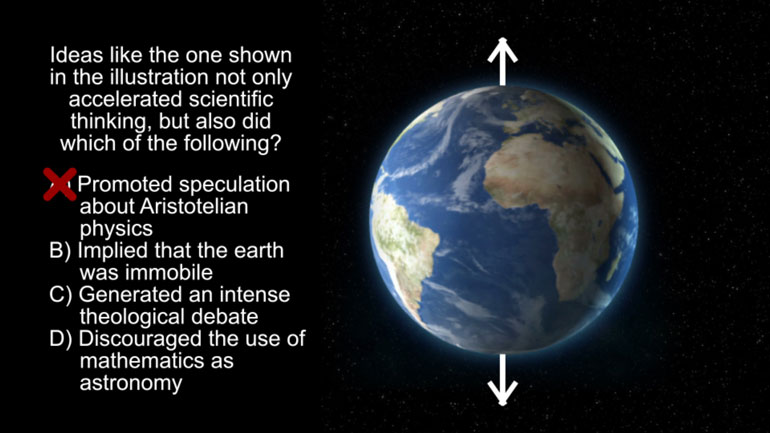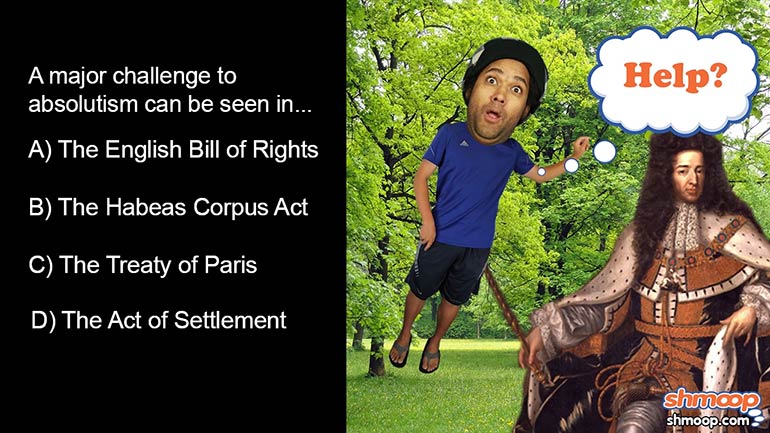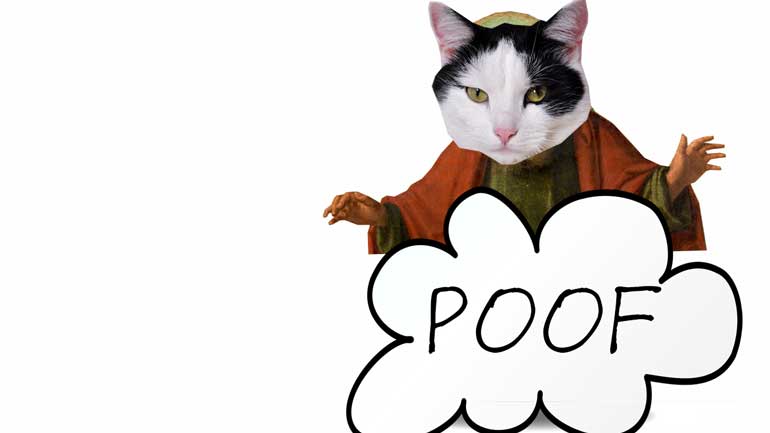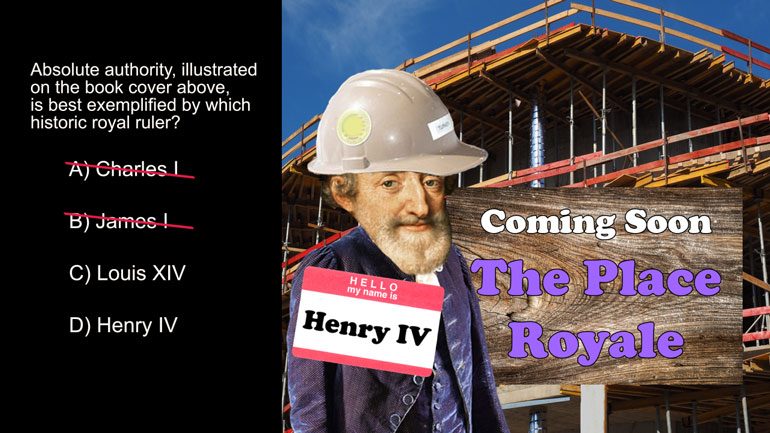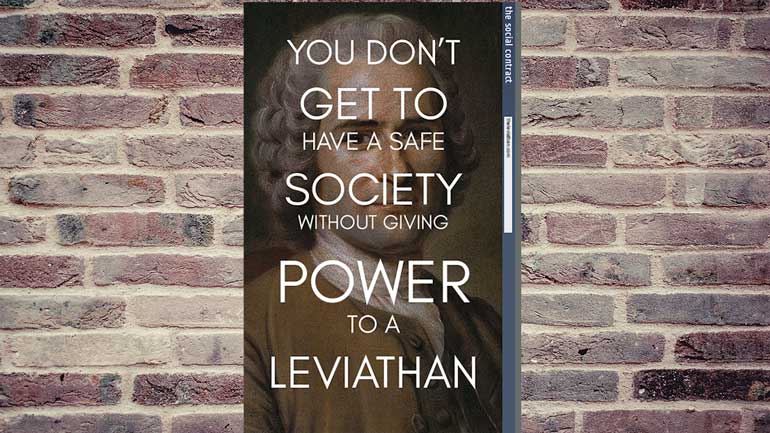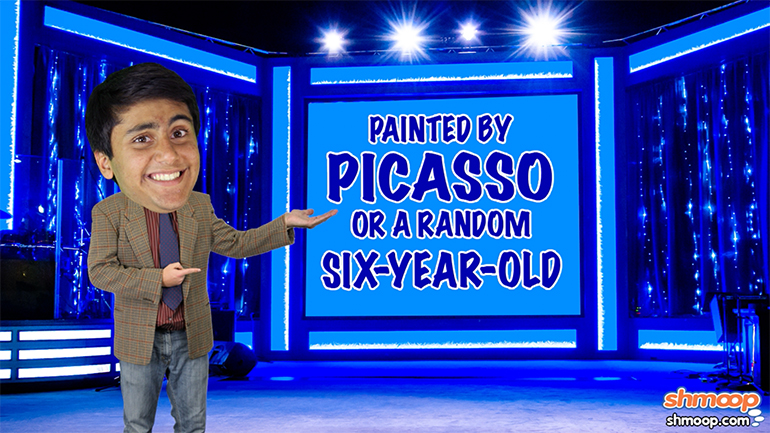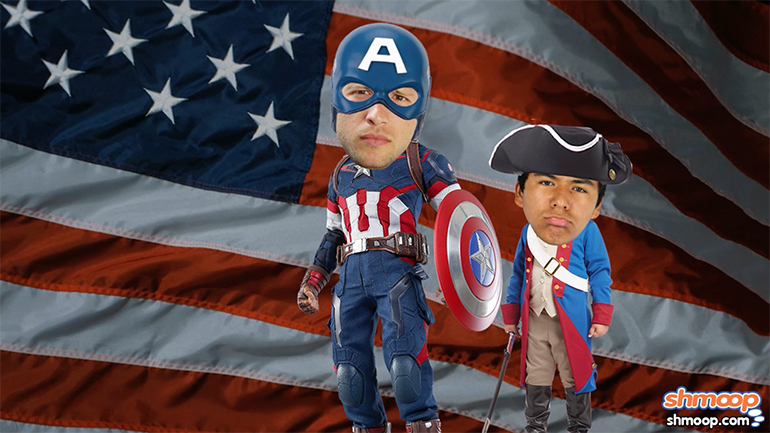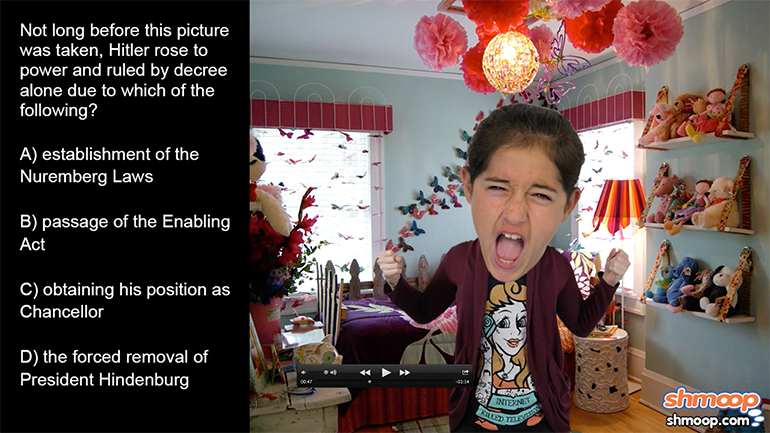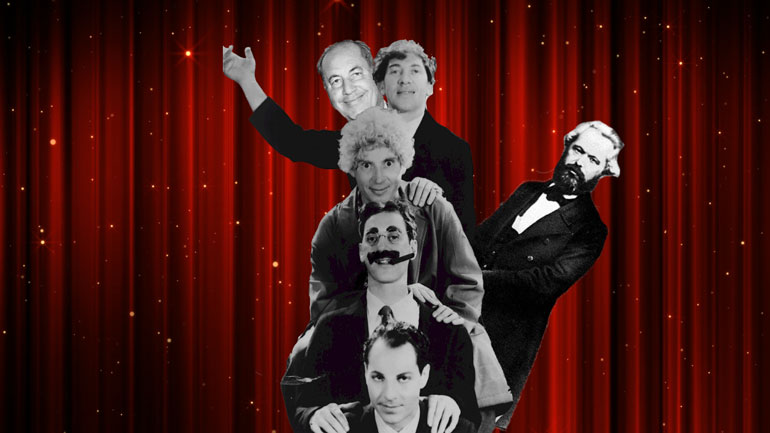ShmoopTube
Where Monty Python meets your 10th grade teacher.
Search Thousands of Shmoop Videos
Period 2: 1648-1815 Videos 9 videos
AP European History 1.2 Period 2: 1648-1815. Which best describes the state of nature as highlighted in Leviathan by Thomas Hobbes?
AP European History 1.1 Period 2: 1648-1815. Thomas Hobbes, the political philosopher who wrote Leviathan, contributes which of the following ideas?
AP European History 2.3 Period 2: 1648-1815 45 Views
Share It!
Description:
AP European History 2.3 Period 2: 1648-1815. Supporters of this image would argue that philosophers of the Enlightenment were mostly inspired by which of the following?
Transcript
- 00:04
And here's your shmoop du jour brought to you by the market revolution
- 00:06
a consequence of the grocery store running out of butter led by General [People mad at grocery store running out of butter]
- 00:11
Gordon Ramsay...Hells kitchens got nothing on this guy all right we'll take
- 00:15
a look at this image....
- 00:19
And here's the question supporters of the image would argue that the Philosopher's of
Full Transcript
- 00:23
the Enlightenment were mostly inspired by which of the following and here are your
- 00:27
potential answers.... what is this image exactly aside from a
- 00:34
really weird Venn diagram..well, these circles are Nicholai Copernicus way of [Hand pointing to Venn diagram]
- 00:38
illustrating his theory that the center of the universe is the Sun as opposed to
- 00:43
the earth, might sound reasonable to us now but in the 16th century was a
- 00:47
totally crazy idea like saying Pluto isn't a planet or something okay okay so [Lots of planets looking at pluto]
- 00:53
we're not over the loss of Pluto yet can you blame us? it was the cutest planet
- 00:57
anyway back to business what would heliocentrist believe inspired the
- 01:01
philosophers of the Enlightenment could it be A the Reformation well the
- 01:06
Reformation of the church led to the creation of absolutism absolute power [Martin Luther in a lab]
- 01:10
held by the monarch but enlightenment philosophers were fundamentally opposed
- 01:14
to the idea of absolutism and vocally argued against it so if inspiration
- 01:20
works how we think it works A is not our answer but we guess you can be inspired
- 01:24
by something you hate for example we hate that dumb boy band song that's [Man listening to boy band song]
- 01:28
always on the radio and it inspires us to sing along loudly because maybe while
- 01:32
we know all the words what we're very thorough in our hate what about D the
- 01:36
age of discovery well this period of extensive overseas exploration ended [Ship travelling overseas]
- 01:40
well before the start of the Enlightenment in the 18th century and
- 01:43
was only vaguely related to it they were like the third step cousins twice
- 01:47
removed or something so that eliminates D...Could enlightenment philosophers have
- 01:51
been inspired by C the Scientific Revolution well sorta more like a
- 01:56
spin-off of the Scientific Revolution characterized by expansion of the [Lots of people in a market place]
- 02:00
marketplace via the construction of new roads and canals, which actually perfectly
- 02:04
describes choice B the market revolution So B is the correct answer..
- 02:08
As a result of the Scientific Revolution science became the Philosopher's go-to [Woman working in a lab]
- 02:13
method for understanding the world.. Two enlightenment philosophers in particular
- 02:17
Locke and Buffon give a shout out to the movement for inspiring enlightenment
- 02:22
thought and by shout out we mean more eloquent and probably lengthy prose than
- 02:27
verse on their mixtape yeah but you knew that already, these guys are great but
- 02:32
they couldn't exactly pull off the chain and grill look sorry.. [Locke and Buffon at a disco]
Related Videos
AP European History Period 1: 1450-1648 Drill 2, Problem 1. As a result of the meeting in the image, which of the following occurred?
AP European History Period 3: 1815-1914 Drill 2, Period 1, Les Demoiselles d'Avignon represented the beginning of which of the following art m...
AP European History Period 3: 1815-1914 Drill 2, Problem 4. Paintings like the one depicted above were a direct reflection of what?
AP European History 1.2 Period 4: 1914-Present Not long before this picture was taken, Hitler rose to power and ruled by decree alone due to which...
AP European History 1.4 Period 3: 1815-1914. As evidenced through the passage above, Karl Marx was a passionate leader and is considered the father...
